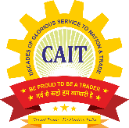Yesterday, Diwali was celebrated with immense enthusiasm, joy, and excitement in almost every corner of the country, and people indulged in festive shopping. The atmosphere was made even more delightful by the illumination of lamps and colorful decorations everywhere. While Diwali has been celebrated today in some areas, the excitement remains undiminished. This was the first Diwali in India after the construction of the Ram temple in Ayodhya, adding to the excitement.
Markets witnessed an overwhelming crowd of shoppers. Alongside merchants, small business owners, like potters, artisans, and those creating Diwali goods at home, also saw significant sales. People shopped enthusiastically, leading to a substantial boost in trade across the country. This year, under Prime Minister Narendra Modi’s “Vocal for Local” initiative, there was a marked increase in the purchase of Indian products. Items like clay lamps, idols of gods, home décor items, torans (door hangings), flowers, fruits and prayer items, colorful lights, sweets and snacks, clothing, handicrafts, gift items, footwear, makeup products, cosmetics, gold and silver items, and other household products saw huge demand, benefiting local traders and artisans. This year’s Diwali sales reached a record-breaking figure of INR 4.25 lakh crore.
In a joint statement, Member of Parliament from Chandni Chowk and Confederation of All India Traders (CAIT) Secretary General Mr. Praveen Khandelwal and CAIT National President Mr. B.C. Bhartia stated that an estimated 4.25 lakh crore was generated in festival trade. Approximately 13% of this was spent on food and groceries, 9% on jewelry, 12% on textiles and garments, 4% on dry fruits, sweets, and snacks, 3% on home décor, 6% on cosmetics, 8% on electronics and mobile phones, 3% on religious and prayer items, 3% on kitchen utensils and equipment, 2% on confectionery and bakery products, 8% on gift items, 4% on furnishings and furniture, and the remaining 20% on automobiles, hardware, electricals, toys, and various other goods and services. The packaging industry also saw significant demand this Diwali.
Prime Minister Narendra Modi’s call to purchase local items for the Diwali festivities had a widespread impact across the country. Products created by local manufacturers, artisans, and craftsmen in all cities of India saw extensive sales, reflecting the vision of a self-reliant India to both the nation and the world during the Diwali festival.
Mr. Bhartia and Mr. Khandelwal stated that, once again, Chinese products were shunned this year, with complete preference given to Indian goods, exciting the traders who are now looking forward to a prosperous wedding season starting with Dev Uthani Ekadashi on November 12.
Mr. Khandelwal expressed his gratitude to all the citizens of Delhi and the nation who contributed to strengthening the country’s economy by purchasing local products this Diwali. He emphasized that once again, it has been proven that festivals are a significant and integral part of India’s economy.
